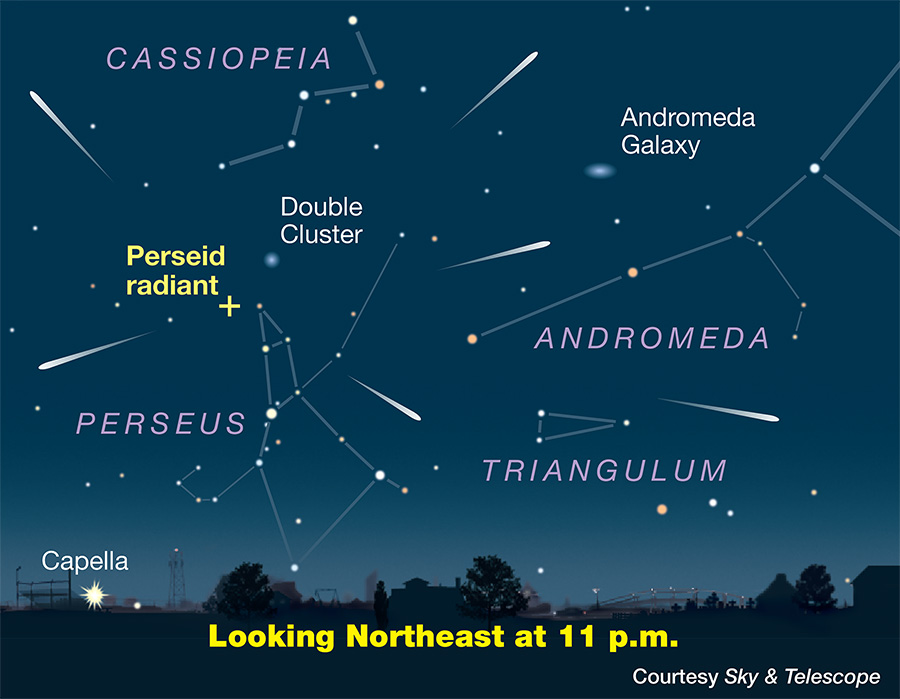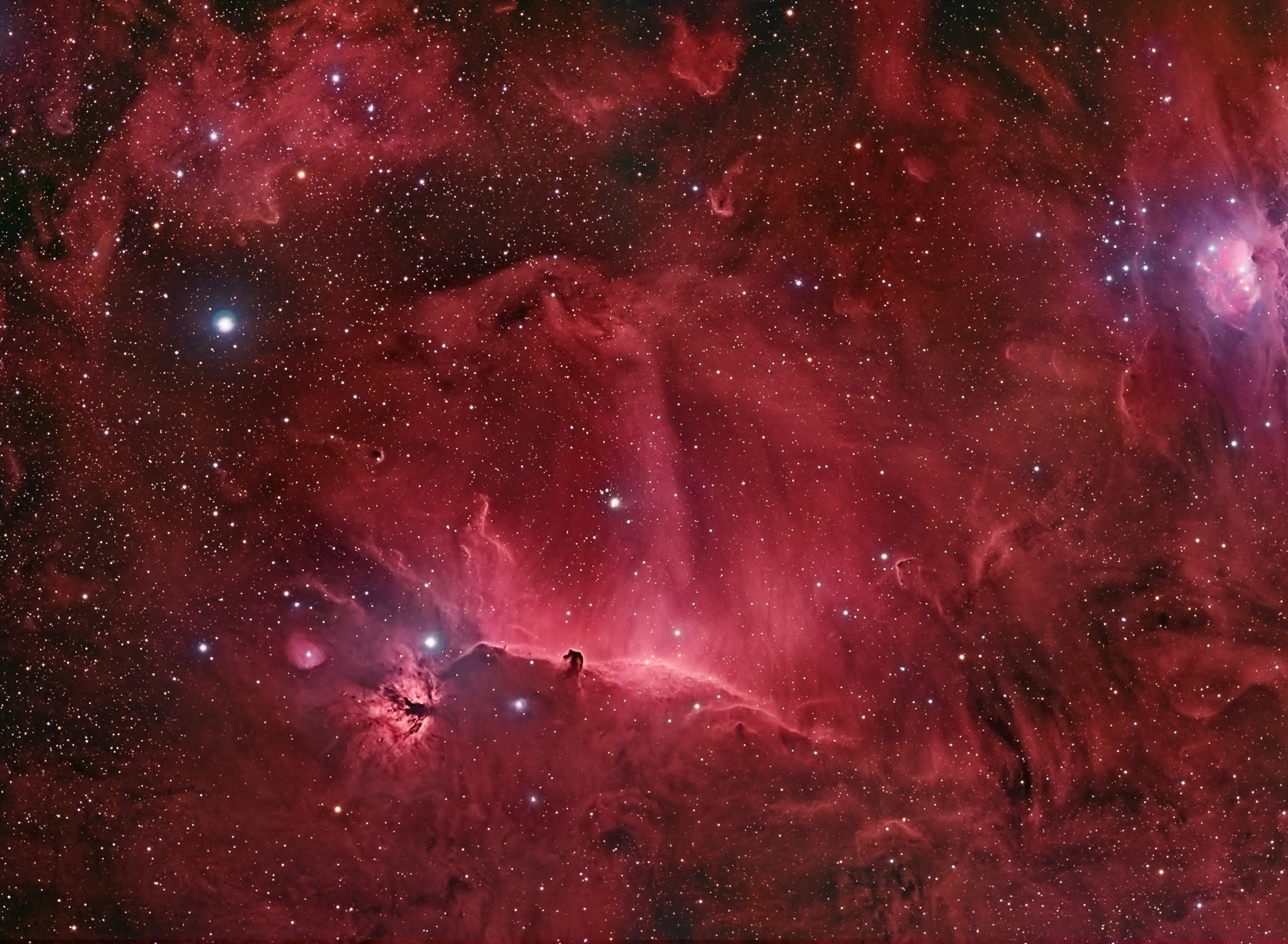 |
| The Perseid radiant |
The Perseids are upon us, literally. As the Earth sweeps around the Sun in its orbit, we gently glide through a region of space dust and debris, the remnants of a comet that passes through Earth's orbit every 133 years or so. And lucky for us, all of this debris is far too small to cause any damage to us on Earth, but big enough to light up the night sky every year.
The Perseid Meteor shower in 2021 takes place over a two-day window on 11-12 August (through the morning of August 13th). The peak is expected to be late on the night of August 11th-12th. At the peak with very clear skies and dark conditions, you could see up to a meteor per minute. But that is an average, and sometimes you can have many minutes go by without any meteors, and then suddenly 2 or 3 all at once. So the best way to see the Perseids is to be patient, find a location with a broad horizon, and my favorite thing -- to do this in a group (even a group of two will do) since more eyes will see more meteors. I enjoy setting up the group to be looking in all different directions so we don't miss any meteors and even though no one person will see 100% of the meteors, we can all enjoy the excitement and fun with friends. Having a comfortable lounge chair and a blanket are a bonus and will enhance your viewing.
As with every meteor shower, the viewing gets better after midnight when more meteors are flying into the atmosphere, so get lots of rest the night before and be ready for a long, relaxing night viewing one of the best meteor showers of the year.
Lucky for us, we have a dark night for viewing the meteors, as the Moon is just a few days past New Moon phase and will set early in the evening. No light from the Moon makes the whole experience better.
This article from Sky and Telescope is an excellent overview of the Perseids, not only tips how to best observe the shower, but why it happens every year and other interesting science.
Image courtesy Sky and Telescope.





No comments:
Post a Comment